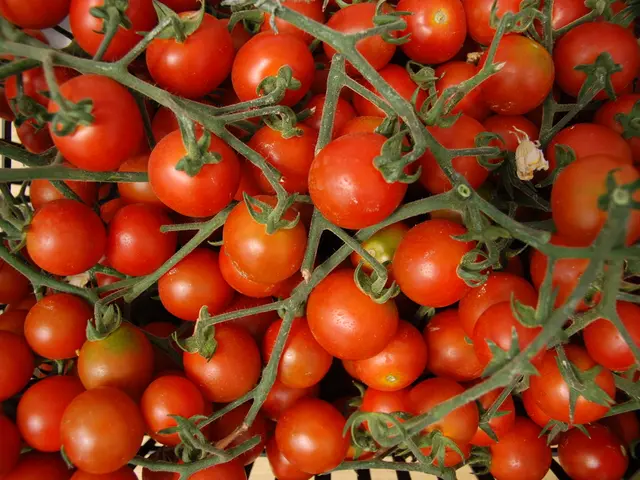Gardening in Harmony with Wildlife: Strategies for a Peaceful Coexistence
Sharing Space with Nature's Creatures: Techniques for Living in Peace with Wildlife Populations
Welcome to the world of rural gardening! Where the green meets the wild, and you've got a neighbor list that includes squirrels, rodents, deer, moose, and even the occasional bear. Yes, you read that right, bears! Don't fret; we've got you covered with some practical advice on how to protect your garden while coexisting with these fascinating creatures.
The Squirrel Synarchy
Oh, those adorable, bushy-tailed squirrels can be a gardener's worst nightmare. But just when you think they're the peskiest pests, they charm you with their agile antics. To prevent these nature's acrobats from chomping down your precious plants, consider these solutions:
- Give them a sacrificial sunflower plot
- Encourage a garden cat, if you don't mind their other shenanigans – fewer problems with birds and no moles too!
- Cover plants with bird netting
Rodent Roundup
Rodents, especially those that dig, can wreak havoc in your countryside garden. Here's what you can do:
- Cover your beds with a mesh or chicken wire under raised beds
- Grow a little extra produce for your furry friends – it's a win-win situation
Deer and Moose Conference
Deer and moose are common sightings, even in small towns. Fortunately, they aren't fans of every garden crop. Take advantage of this and grow plants from the nightshade family and onion family – they're not on their menu. However, if you want to grow cabbages, they might be a delicacy for moose. So, cover them up tight!
A sturdy fence can keep them out to some extent. But keep in mind that their poor vision can make them ignore a fence altogether if it doesn't separate them or they're not desperately hungry. Netting, on the other hand, seems to work best for deer and moose.
The Great Bear Run
Bears aren't regular visitors to our towns, but they can be a challenge if you live in certain areas. If they do show up, harvest your fruits before they're ripe to avoid attracting them. And remember, bears aren't fans of garlic, pepper, or castor oil sprays – use them to your advantage!
We hope our experience and insights help you garden in harmony with wildlife in your rural abode. Share your own experiences and tips with us in the comments below, and let's continue learning together.
Stay updated with the latest garden insights by subscribing to our website and following us on Instagram, Facebook, or Pinterest.
Explore More
- Growing a Hydroponic Tower Garden in a Cold Climate
- How to Support Tomato Plants
- Transplanting Tomato Plants into the Ground
- Hardening off Seedlings the Easy Way
- How to Transplant Seedlings into the Garden
- How to Soak or Sprout Seeds Before Planting
- Soil for Seedlings, Container Gardening, and Raised Beds
- Northern Vegetable Garden Planting Schedule
- Starting Vegetable Seeds Indoors
- Growing Fruit and Berries in an Urban Yard
- In a cold climate, consider growing your fruits and vegetables in raised beds filled with suitable soil, as this method provides excellent drainage and warms up faster in spring.
- Families with a home-and-garden lifestyle can take up gardening as a hobby, especially by planting Dahlia and Zinnia flowers in their garden to attract various bees and butterflies, creating a beautiful and productive landscaping.
- When the temperature drops, harvest root vegetables like carrots, beets, and potatoes from the garden to store them for long-term consumption, thus ensuring a nutritious supply during the colder months.
- For those looking to maintain a self-sustainable lifestyle, raising birds in a home-and-garden setting can ensure a steady supply of fresh eggs and contribute to a charming garden backdrop, as hens can help control pests and improve soil fertility.
- To minimize frost damage, protect your sensitive plants like peas, lettuce, and spinach by covering them with row covers during cold nights, ensuring a vigorous harvest once the weather warms up again in your garden.







